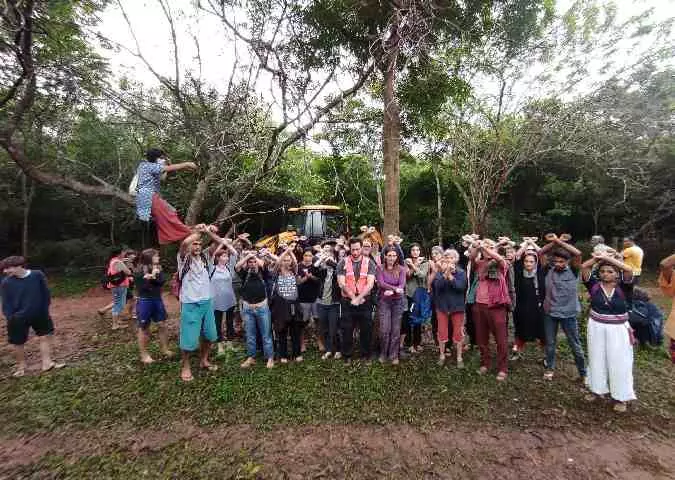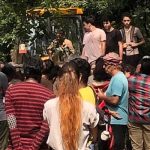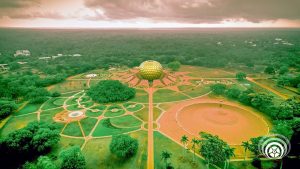
There are 2 more issues that I wish to highlight These are:
Decision making – the Mother, the Governing board, Aurovilians
1. For many of us the project of Auroville belongs to the Mother. She has initiated the project. She has given it a Charter. She has worked on the plan for the township with Roger the architect and chosen the galaxy plan for the township. She has given detailed instructions for the construction of Matrimandir which has been completed as per her instructions. She has given names to the 12 Gardens around the Matrimandir and these gardens are being created as per the significance of the names she has given. In various conversations and messages she has given indications of the organisation of Auroville, the economy of the township, its relations with the neighbouring villages et cetera et cetera.
It is strange for us therefore to constantly hear the argument that it is for the resident assembly to decide on everything pertaining to Auroville. In the same way the Sri Aurobindo society(SAS) claimed ownership of Auroville and therefore final decision making powers pertaining to Auroville which was then challenged resulting in the Auroville foundation act, 1988. The organisation of Auroville is now determined by this act of Parliament.
The Auroville foundation act tries to ensure a harmonious development of the township of Auroville along the lines envisaged by the Mother. I will not go into the details of the act but suffice it to say that the act envisages that the residents of Auroville would organise the day-to-day activities of Auroville and assist the governing board in carrying out its functions under the act. The act makes it amply clear that it is the governing board that is empowered to take final decisions. This has also been made clear in various opinions sought by Aurovilians from very senior advocates.
In the circumstances there should be no issue at all of who is the author of Auroville and who is the final authority in the affairs of Auroville as per the provisions of the Auroville foundation act
Freedom
2. Freedom is a basic necessity for any true creative work. I believe Auroville is attractive to people who come here because they find a freedom over here – a freedom to be who they truly are – which they are unable to find elsewhere. This freedom however is not of the ordinary kind related to outer expression of one’s being but on the other hand is a deeper inner freedom that is offered here. An example that happened during Mother’s life will suffice to explain the difference:
Someone from Auroville wrote to me that he thought he had come here to obey no one but himself(or words to that effect) but he noticed there are rules and laws. And he said,”I am not going to do any of this; I am a free man and refuse to do this.”This was reported to me, naturally so I wrote to him(I don’t remember):”one is free only when one is conscious of the Divine and conscious that it is the Divine who makes decisions in every one, otherwise one is the slave of one’s desires, one’s habits, of all conventions……” I sent him that and he kept quiet.
Mother’s Agenda volume 11 page 74
The freedom we want to realise in Auroville is not license – each one doing what he pleases without concern for the well-being of the organisation of the whole.
As for the principal that everyone should be allowed to do according to his nature, you can apply only where people do independent work by themselves; where many have to work together, it cannot always be done – regularity and discipline are there the 1st rule. Shri Aurobindo 1937.




